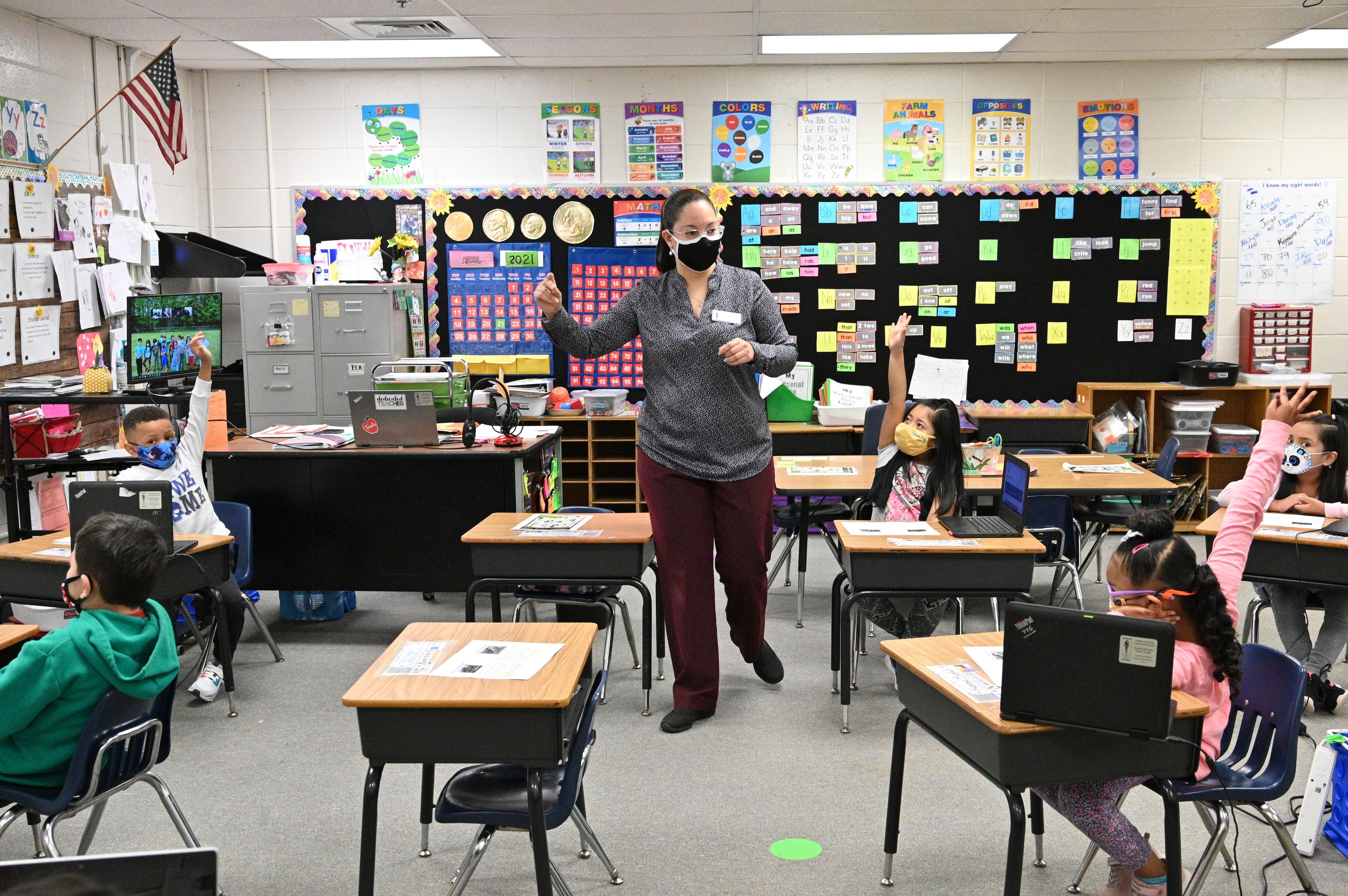Here come the bots. Let’s keep our heads and our jobs.

Last week, I listened to new music that has gained almost 1 million monthly listeners on Spotify. Xania Monet appeared to be an up-and-coming new artist who has charted on Billboard and signed a $3 million recording contract.
But the “artist” is an AI creation of a poet who fed her words into a music generator to create finished songs. Monet’s visual image is also AI generated.
The music was mid, as Gen Z would say, and as hollow and soulless as I would have expected it to sound, but maybe that’s only because I knew I was listening to a machine.
Artificial intelligence has been on my radar, but until this moment, I hadn’t realized how much it has begun to permeate my life.
A parent generated the suggested schedule of activities for our Girl Scout troop using AI. A friend used AI to create a travel itinerary for an upcoming trip. Those uses feel like helpful shortcuts to make life easier.
But then I heard about Monet and Tilly Norwood, the AI actor that has yet to book a role, or the AI reporters delivering news about the Arizona Supreme Court to the public.
On social media, theories began circulating that em dashes — which I use prolifically in my columns — are a telltale sign that content has been AI generated.
I was shook. Are the bots coming for my job?
America has engaged in many races to dominance throughout history. The nuclear arms race led to the bombing of Hiroshima and Nagasaki 80 years ago. The space race of the mid-20th century put the first and last man on the moon.
Now we are racing to develop advanced AI technologies that will give us an economic and military advantage over our rivals. The AI race is in its infancy, and it’s already horrifying. Maybe we will win, whatever winning looks like, but as we’ve learned from the past, there is always a price to pay.
Stacy Keltner, a professor of interdisciplinary studies at Kennesaw State University, writing in Ms. magazine, said the question of alignment — that is, how to make sure AI systems do what we want instead of departing from human values — is the biggest anxiety trigger.
But the people looking for solutions to prevent this from happening could very possibly be the ones feeding misaligned values and personal bias into AI models.
AI 2027, a speculative forecast, outlined how AI could achieve superintelligence, meaning that it surpasses human capabilities, in just a few years. A cursory look at the forecast sent me spiraling again.
A few months ago, Mark Riedl, a professor in the School of Interactive Computing at Georgia Institute of Technology, shared a joke that made me feel better, but when I talked to him on the phone this week, he said the joke — that AI would not replace people, but people who use AI would replace those who don’t — was already obsolete.
“I don’t know if I would make that same joke now,” he said. “There is a lot of conflicting evidence coming out about how useful some of these AI systems are in the actual workplace. What I am hearing now is that coders are working faster, and the AI systems are doing more and more to automate the small bits and pieces of work we do, the well-defined repetitive tasks.”
But work is also about relationships, he said, and we are all so overworked that even if AI takes on the more mundane parts of our jobs, there should still be work for humans to do.
We do need a level of AI literacy, however, and we need to develop better intuition about what is and isn’t going to work in the world of AI.
“It stems from how the models are built and how they are trained. If you have intuition about how they were built, you can make guesses about what is harder to automate,” Riedl said.
We can’t assume that the development of AI is linear or exponential. Things may be moving fast, but at the same time, progress has been uneven.
The problem with racing to a finish line is assuming the finish line is predefined and that we know what will happen if we get there first.
I worry about anyone who is at risk of losing their jobs to AI. I also worry about future generations, specifically members of Gen Z, embarking on careers in a market full of deepfakes and bots with misaligned values.
As much as I want to ignore avatars posing as actors, singers or journalists, I also know, at this moment, we can’t be passive consumers of whatever AI throws at us.
We can’t allow those leading the slog toward wherever AI is taking us to operate under a rigid set of assumptions about what is and isn’t possible — and how what is or isn’t possible should or shouldn’t be regulated.
Maybe we will win whatever race we are in, but we also have to hold on to our humanity.
Read more on the Real Life blog (www.ajc.com/opinion/real-life-blog/) and find Nedra on Facebook (www.facebook.com/AJCRealLifeColumn) and X (@nrhoneajc) or email her at nedra.rhone@ajc.com.



